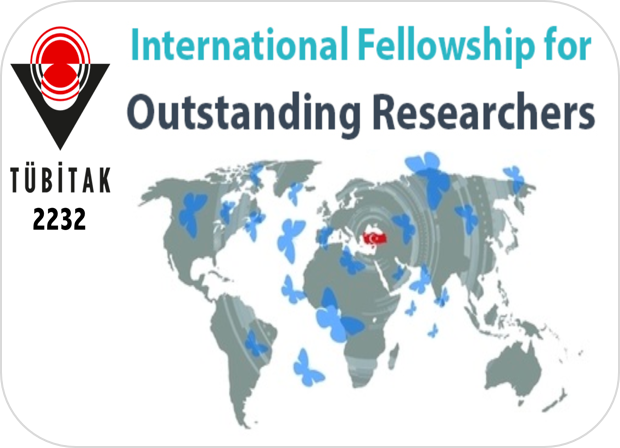 Dr Islem Rekik has been awarded the TUBITAK 2232 fellowship for outstanding researchers under the category of experienced researchers for 3 years, starting from November 2019 at the host institution Istanbul Technical University.
Dr Islem Rekik has been awarded the TUBITAK 2232 fellowship for outstanding researchers under the category of experienced researchers for 3 years, starting from November 2019 at the host institution Istanbul Technical University.
Project title: Devising Reproducible PRedictive Intelligence in MEdicine (RePRIME) for Early Neurological Disorder Diagnosis from Minimal Medical Data
Project start date: 1.11.2019
Project end date: 31.10.2022
Proposal summary:
Brain disorders represent a considerable social and economic burden in Turkey as well as Europe and the US. With yearly costs of about 800 billion euros and an estimated 179 million people afflicted in 2010 in Europe, neurological disorders (ND) are an unquestionable emergency and a grand challenge for neuroscientists. Specifically, in Turkey, dementia is usually diagnosed at the end of the first stage or at the beginning of the middle stage. An accurate diagnosis for neurological disorders in a very early stage using non-invasive magnetic resonance imaging (MRI), including Alzheimer’s disease (AD), is one of medicine’s holy grails. However, meeting this formidable challenge is faced with several hurdles cluttering the following ideal wishful ambitions: (1) one would ideally use high-resolution data for diagnosis, however, high-resolution MRI data acquired using 7T scanners are only available in a couple of hospitals worldwide and generally are not integrated in the clinical diagnosis routine in comparison with low-resolution MRI data acquired using 1.5T or 3T MRI scanner, (2) one would ideally diagnose fast and accurately using a single timepoint; however, progressive neurodegenerative disorder might show very subtle changes in their early stage. Hence acquiring a few-month spread-out brain MRIs can improve diagnosis however spoil early ND diagnosis from a single observation upon 1st visit to hospital, (3) one would ideally diagnose using multiple available MR imaging modalities (i.e., multiple medical sources) including functional and diffusion magnetic resonance imaging (fMRI or dMRI), which have demonstrated great potentials in diagnosing brain dementia compared to solely using structural T1-weighted MRI. However, these are not conventionally acquired in the clinical routine in Turkey and worldwide, and (4) suppose that all challenges (1-3) can be met with groundbreaking medical data analysis technologies, reproducing disorder-specific brain biomarkers to target for preventive treatment in a very early stage within a brain dataset of interest, let alone across different datasets with same disorder, remains unsolved. Such formidable challenges can be solved by the development of what I name as “Reproducible Pedictive intelligence in medicine (RePRIME)” to diagnose in the earliest stage using the least clinical data: a low-resolution, single timepoint, and conventional T1-weighted MRI modality. This would constitute a breakthrough in early ND diagnosis as it would allow accurate early diagnosis using high-resolution, multimodal MRI data, and follow-up observations all predicted from only T1-weighted MRI acquired at observation timepoint.
Archives
- August 2025
- April 2025
- February 2025
- January 2025
- December 2024
- July 2024
- June 2024
- June 2023
- June 2022
- May 2022
- April 2022
- November 2021
- August 2021
- April 2021
- March 2021
- February 2021
- October 2020
- September 2020
- July 2020
- June 2020
- April 2020
- November 2019
- October 2019
- May 2019
- September 2018
- July 2018
- May 2018
- April 2018
- March 2018
- December 2017
- September 2017
- August 2017
- July 2017
